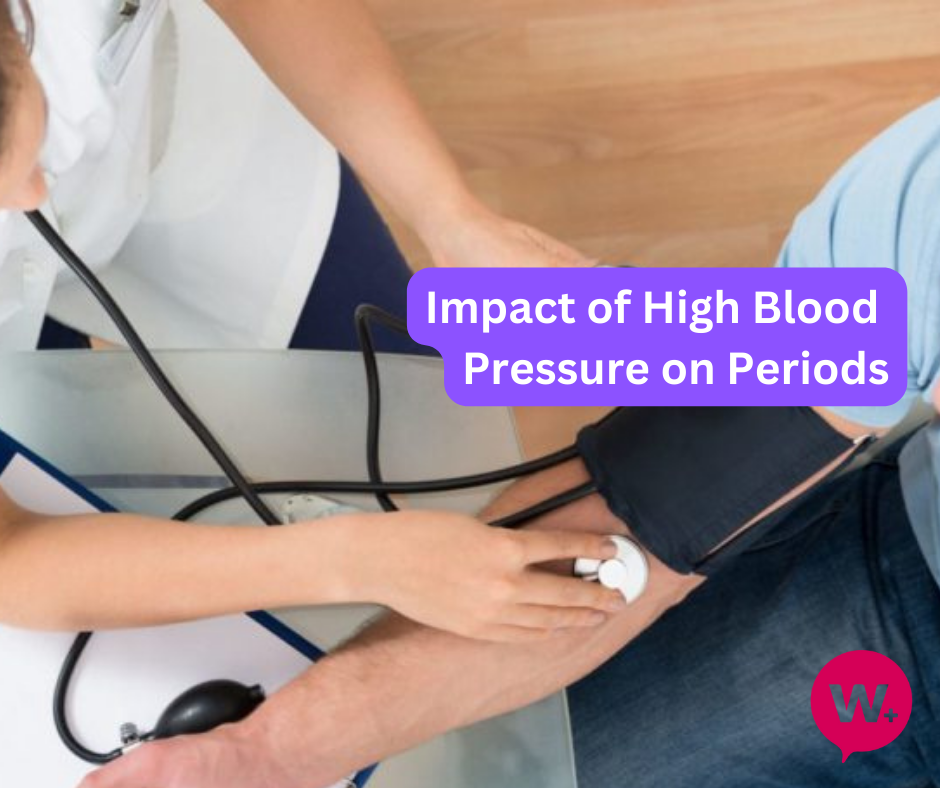The exact cause of hypertension, or high blood pressure, can often be challenging to identify precisely. In most cases, hypertension develops gradually over time due to a combination of various factors. These factors causing high blood pressure conditions can be genetics, lifestyle factors, lack of exercise, dietary deficiencies, age factor, excess weight (obesity) and other medical conditions.
It’s worth noting that in many cases, hypertension may not have a single identifiable cause but rather results from a combination of several risk factors.
High blood pressure generally does not directly affect periods. Menstruation is primarily regulated by hormonal changes in the body and the menstrual cycle, which is controlled by the reproductive system. However, there are certain indirect ways in which high blood pressure can potentially influence menstrual patterns or cause complications. Let’s explore some of these aspects:
- Stress: High blood pressure can be associated with stress, and excessive stress may affect the regularity of menstrual cycles or lead to changes in menstrual flow. Stress can disrupt hormonal balance and interfere with the normal functioning of the reproductive system.
- Medications: Some medications used to manage high blood pressure, such as beta-blockers or diuretics, may have side effects that can potentially impact the menstrual cycle. It’s essential to discuss any medication-related concerns or queries with your healthcare provider.
- Underlying conditions: High blood pressure can sometimes be associated with certain underlying conditions, such as polycystic ovary syndrome (PCOS) or thyroid disorders, which can influence menstrual regularity and cause hormonal imbalances.
- Complications: In rare cases, severe high blood pressure can lead to complications like preeclampsia during pregnancy. Preeclampsia can cause problems with the placenta, affecting blood flow to the uterus and potentially leading to changes in menstrual patterns or difficulties conceiving.
If you’re experiencing irregularities in your menstrual cycle or have concerns about how your blood pressure may be affecting your periods, it’s crucial to consult with your doctor. They can provide a comprehensive evaluation, consider any underlying factors, and guide you with appropriate advice and treatment options for your specific condition.






,